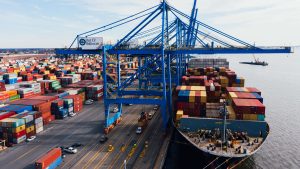
When it comes to driving economic progress and contributing to the vibrant tapestry of industries that define Malaysia, blue collar worker malaysia are the unsung heroes of the workforce. Workers in blue-collar jobs are constantly shaping Malaysia’s physical and economic landscape, whether they’re on construction sites, in factories, or in the service industry.
Diverse Roles and Industries:
They are indispensable to manufacturing production lines, which are responsible for the efficient assembly of goods that drive the export-driven economy of the country. Modern cities in Malaysia are characterized by towering skyscrapers and intricate infrastructure, both of which are the result of their mastery of the construction trade.
Skilled Trades and Craftsmanship:
Expertise from electricians, plumbers, mechanics, and technicians is essential for the upkeep, repair, and innovation of infrastructure and machinery. Everyday operations, as well as the promotion of innovation and resilience in the face of technological advancements, rely on their proficiency in skilled trades.

Agriculture and Rural Economy:
Working in the fields, blue collar employees of agricultural organizations ensure that the country has food on the table. They play an important role in rural economies by planting, harvesting, and tending crops, which in turn support people’s livelihoods. Thanks to their hard work, Malaysia’s agricultural sector remains resilient, and the country’s food supply remains steady.
Role in Urban Development:
The tireless efforts of blue collar worker malaysia construction industry have been instrumental in molding the country’s urban landscape. Their hard work and skill are visible in the form of residential complexes, skyscrapers, highways, and bridges. Beyond mere aesthetics, these projects have a profoundly transformative effect by providing communities with environments in which to flourish.
Challenges and Resilience:
Despite the vital role they play, blue-collar workers frequently encounter obstacles like job instability and difficult working conditions. Yet, their determination to overcome these obstacles, fueled by a strong sense of responsibility and an understanding of their part in the process of building their nation, is truly remarkable.
Government Support and Upskilling Initiatives:
The government of Malaysia has launched programs to improve the status and abilities of blue-collar workers because it values them. In order to keep up with the ever-changing job market, technical and vocational education and training (TVET) programs try to improve blue-collar workers’ skill sets.
Malaysia’s blue-collar workers are the backbone of the country’s workforce and an indispensable part of Malaysia’s economic development and growth. Their varied responsibilities, expertise, and steadfast commitment mold the nation’s physical and economic environments. Despite setbacks, blue-collar workers have proven time and again that they are an integral part of Malaysia’s success story.






